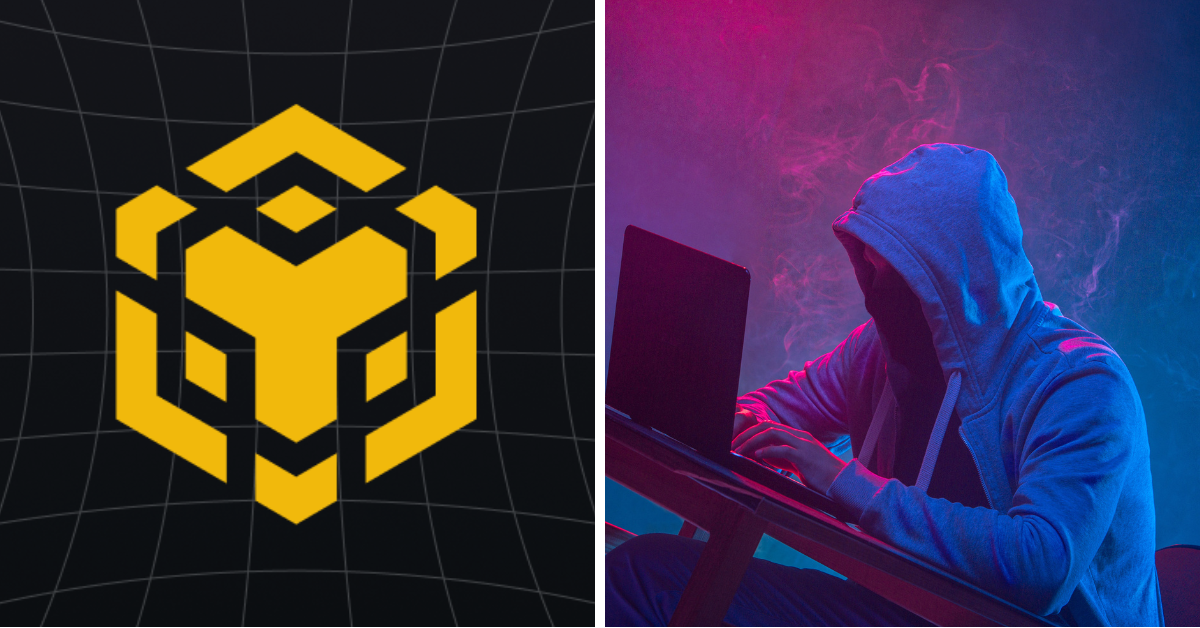Confusion in the era of digital economy: What happens to digital heritage after people die?
A few years ago, the death of stars Yao Beina and Qiao Renliang sensationalized the entire media circle and entertainment circle. Due to complex reasons, in addition to the major media's disputes concerning human rights privacy and depression caused by the incident, the radiation effect of the incident is quite strong. A large number of fans ran to their Weibo, or other public accounts to leave comments and mourning.
Now their Weibo account still exists, recording their bit by bit sharing and time, but time has been fixed in 2014 and 2016 forever.
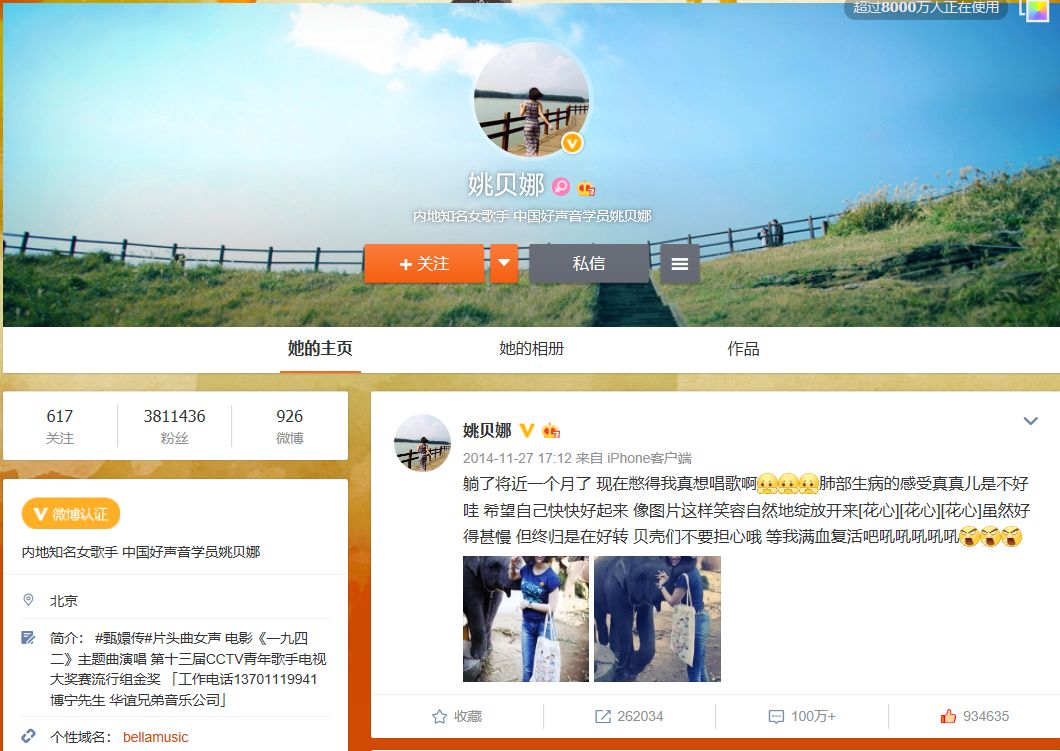
Yao Beina’s last Weibo
- Viewpoint | Is decentralization technology really better than traditional technology?
- Exchanges are temporarily withdrawing cash, data is garbled, or the Amazon server failure in Tokyo
- Ethereum will become the first public chain of the Hyperledger Alliance
The Internet has subverted people's lives. For modern people, social data is left in almost every aspect of life, such as social, entertainment, communication, transportation, and shopping. People are born from the birth, but when interacting with the outside world, it is possible to form a data packet, which can be saved.
Therefore, for many years, human beings not only survive a "real self" in the physical world, but also live in the virtual world with another "digital self" full of emotion, release and personification .
Furthermore, from the era of information exchange to the era of value exchange, with the birth and development of new technologies such as digital currency and blockchain, each person's hands have more or less digital currency assets, and human digital assets are becoming more abundant.
Suppose one day, the self-reality in the physical world is dying, and the digital self in the online world will be permanently retained if it is not deleted.
Have you ever thought about the information that is full of personal memories, such as WeChat, Weibo, Douban, and Vibrato, hidden in the cloud of loved e-books, movies, gold coins in the game world, skin, and even the major exchanges. Digital currency, what should I do with these things?
In recent years, the issue of “digital heritage” has received more and more attention, and the handling of this issue is closely related to everyone living in the current era.
Digital heritage without place
So what is a digital heritage?
Digital heritage refers to the network rights and property owned by individuals left behind by the successor. Digital heritage is the emergence of the Internet in the context of an increasingly important human life, quickly becoming a personal digital archive center, including personal web albums, documents, letters and videos. ("Science China" Science Encyclopedia entry)
Generally speaking, "digital heritage" refers to the digital cultural heritage on the Internet, that is, the textual works, materials, pictures and audio-visuals in the form of the Internet, forming a heritage of cultural heritage, which is now on the Internet. The contents of the reading, cultural channels, blogs, forums, BBS, space, etc. involved in the creation, recording and so on.
A study by Oxford University showed that Internet social giant Facebook has been established for 15 years, and its death users have exceeded 30 million. The trail of 30 million users has formed a huge data cemetery. Experts analyze that at this rate, Facebook will have more dead users than living users after half a century.
However, most people have never thought about or understood how digital heritage should be handled .
According to a survey conducted by NHK TV's "close-up modern +" column, 55% of Japanese netizens are uneasy about how to deal with digital heritage. At the same time, 95.2% of netizens don't know what to do with digital heritage.
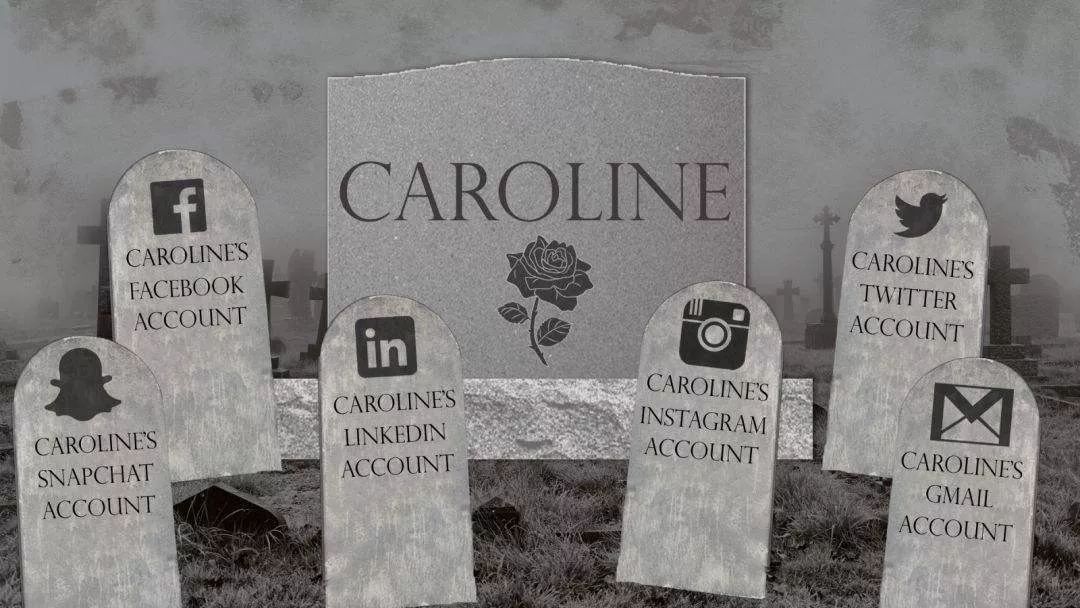
In fact, the problem of dealing with digital heritage is not only in Japan, but most countries in the world have no good experience in dealing with this issue.
Digital heritage is a very complicated issue involving the contradictory tension between the systems of inheritance, communication secrets, and protection of personality rights. Regarding the digital heritage, the most typical case of disputes is the “Facebook” case of the German Federal Supreme Court in 2012.
In 2012, a 15-year-old girl died in a train crash at the Berlin underground station in Germany. Her mother wanted to find out if her daughter was killed or committed suicide and asked to see her daughter's Facebook account information. However, Facebook rejected the mother's request for the principle of data protection for personal privacy. So the mother took Facebook to the court. Three years later, the Berlin District Court made a first-instance ruling: Facebook must grant girls parents the right to access their accounts. But Facebook expressed dissatisfaction and appealed to the German Federal Supreme Court.
At that time, Ulrich Hermann, a judge of the German Federal Supreme Court, said:
“It is very common to give private diaries and letters to legal heirs after death. There is no reason to treat the digital data differently. Parents have the right to know who their underage children are talking to online. Now the parents take over the account, This means that their daughter has officially left."
Thus, the German Federal Supreme Court ruled on July 12, 2018 that Facebook must allow the parents of dead girls to enter legally as the heirs of the daughter's user account. When the decision came down, the girl’s account has been blocked for five and a half years.
From a Facebook perspective, the platform is more concerned with data protection and personal privacy. From the perspective of the girl mother, she is more concerned about the death of her daughter and what she thought before her life. For the European countries that first promulgated the “GDPR Data Security Privacy Protection Regulations”, the judgment of this case placed the inheritance right before the privacy right, which can be said to be very typical and representative.
Delete or inherit, how do Internet giants solve?
When we sign up for some accounts, how many people actually read the privacy terms carefully?
PingWest has reported such a cold knowledge: Every year we have all the privacy policies and terms of “approval” on various websites and apps . If you want to read it carefully, you need to spend 76 full working days. However, one of the provisions directly related to digital assets is that the user has the right to use the account only, and the account ownership is owned by the platform company.
Most people will choose to agree directly for convenience. It can be seen that the right to process digital information in our hands has long been “selected”.
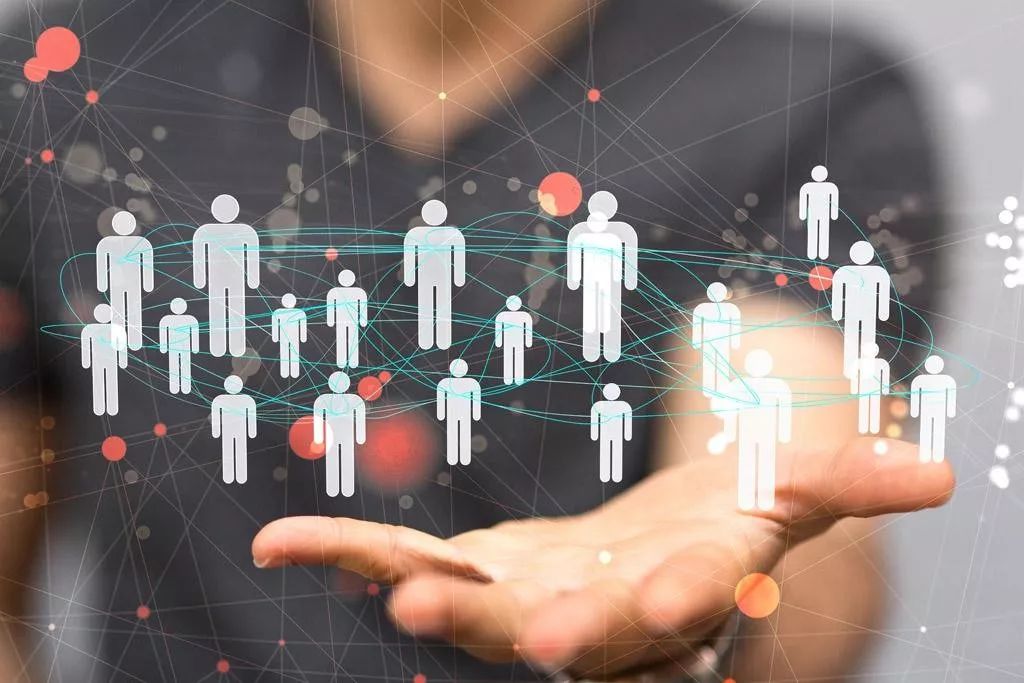
In addition to ordinary Internet users, major Internet companies need to consider the digital heritage issues they will face. Most foreign technology and social media companies have developed policies for how users handle their published web content after their death.
For example, in 2013, Google launched the “Death Service”. Everyone who signs up for a Google account can designate a family member to take over the account. According to the settings, if Google finds that your account has not appeared in any corner of the world for a period of time, Google will send you an email. Once you have not responded within a month, your Google account will officially enter the death process. Google will send your Google Account packet to your designated friends and family. Gmail contacts, Google Cloud Folders, YouTube playlists, and more can be sent to friends and family's mailbox.
If you don't want to send any data to anyone, Google will help you delete the account it can manage. At the same time, everything you do with Google will disappear.
In February 2015, Facebook also launched the "Agent" feature. Once the death is proven, Facebook's major accounts will meet the requirements of the asset executor setting: either delete the account; or hand it over to the agent to keep it for the relatives and friends to commemorate the deceased, allow the agent to change the user profile picture, and post the post function. And ask the platform to cancel the account and so on.
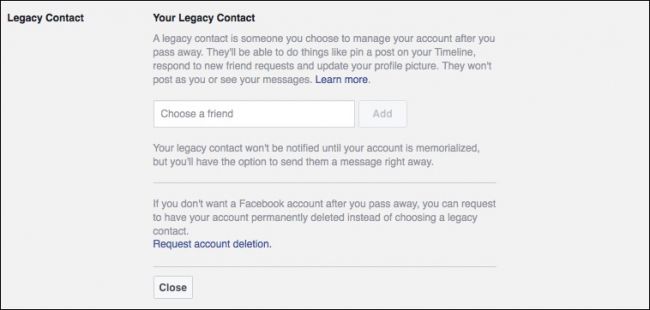
Apple and Yahoo are more straightforward in dealing with this issue. Apple clearly states in the terms that the user's account is not transferable and that any rights to the Apple ID or content within the account will be removed after the user is certified dead. Yahoo's Flickr uses the parent company's terms of service: once the user dies, the contents of his account and account will be void.
The digital heritage processing methods of some domestic Internet giant companies are also different.
For example, Tencent's WeChat and QQ use the same "recycle" policy as Apple and Yahoo. If the user's account has not been logged in for a long time, Tencent will forcibly recycle these accounts to avoid wasting resources. The recovery account cannot be recovered and the information on the account will be permanently deleted. If the account contains assets, the relatives can provide information about the source of the account funds, a valid mailbox, and a death certificate for the transfer of funds.
Weibo is handled in a similar way to Google and Facebook. You can apply for account protection through the microblogging service. After verifying the relevant information, the account of the deceased user will be transferred to the new account holder.
But the difference is that neither Tencent nor Weibo have the option of assigning an "agent" during the lifetime of the user. This is obviously not the most responsible way to deal with the "digital remains". Although the platform will save a large part of operating costs, it also avoids possible legal issues, especially when the law of digital heritage has not yet been formed.
There are only a few international laws on the inheritance of digital heritage. Only a small number of countries have relevant legislation, and most countries are still blank.
In August 2014, the United States passed the Digital Access and Digital Account Entrusted Access Act, becoming the first state in the United States to fully enact legislation for online digital heritage. The law provides that heirs and executors have the right to receive the digital assets or equipment of the testator.

Russia’s law in this piece is relatively mature. The National Heritage Inheritance Act stipulates that a network digital heritage may be considered a “other property component” in the inheritable heritage classification.
In 2017, under the auspices of the Standing Committee of the National People's Congress, China began to amend the Civil Code. Article 127 states that “the law protects data and network virtual property in accordance with its regulations.” This marks the general rule of the Civil Law. "Admitted the legality of the virtual property of the network.
The inheritance of digital cryptocurrency inherits new entrepreneurial opportunities
In addition to the digital cultural heritage on the Internet, the “digital heritage” should include a wide variety of digital cryptocurrencies held by people. Therefore, in addition to the inevitable social privacy issues of digital heritage, when the era of digital currency comes, people are faced with the processing of digital currency heritage. After all, everyone's digital property has a day to become a digital heritage.
British jurist William Blakes once said: "Nothing can be like property rights. It is a combination of imagination and feelings. Nothing can be like property rights. It can be completely exclusive by human beings. The way to the outside world advocates exercising its sole and absolute dominance."
At present, the global digital cryptocurrency market is already quite large.
According to coinmarketcap statistics, as of August 22, 2019, the total market value of global digital cryptocurrencies exceeded $260 billion, of which Bitcoin ranked first with 68.8% of the total, and the number of digital cryptocurrencies reached 2,473. This number will continue to rise, especially after the announcement of digital currency by many mainstream institutions such as Facebook, Wal-Mart and the People's Bank of China.

Digital currency or digital assets may make business or transactions easier, but it does increase the complexity of the estate planning process. For example, writing a will and letting the executor find all the assets, using traditional methods will not be feasible.
Qian Yinggang, a lawyer at Hangzhou Jingheng Law Firm, told Mars Media that the legacy of Bitcoin is actually not a problem. After all, there are private keys that can be controlled, but there may be some problems when conducting property notarization. After all, the private key cannot be publicized. Maybe you need a multi-signature in technology.
Bepal wallet CEO Hu Yuanquan told Mars Media that if Bitcoin is stored on an exchange or a third-party centralized platform, the legacy of this case is very similar to traditional network data (such as Weibo account). The decentralized storage of digital currency is based on a private key, and heritage inheritance is often similar to the way in which cash is passed on in life.
From a technical point of view, digital currency such as Bitcoin involves the notarization link at any time. When self-certification is required, the private key should not be presented. It is reasonable to complete the certification process by means of message signature. Hu Yuanquan said that the growing scarcity of Bitcoin is a trend, not only the death of the holder, but also the loss of various accidental private keys, which will not have any adverse effects on Bitcoin.
From the perspective of copyright, Xuan Hongliang, the deputy secretary-general of the Capital Copyright Industry Alliance, believes that both the digital and the traditional currency are anonymous, so whoever is the name of this anonymous estate is lost. It is lost, this is the property of this asset attribute. Therefore, digital assets must have certain rights. Otherwise, the loss of digital assets cannot be recovered.
Meng Yan, the founder of the General Economics and vice president of CSDN, believes that this matter is not complicated and can be solved through smart contracts or commissioned professional management.
Earlier, the Beijing News reported that the disposal of “digital heritage” could give birth to some new entrepreneurial opportunities.
In October 2016, a project called “With Parents” was established in Wuhan. Some users who have unexpected concerns can provide them with network asset clues, as well as property hosting and handover services for accounts such as Alipay and WeChat.
Currently, according to the author's understanding, OKEX, Firecoin and other exchanges do not have the option of account hosting and heir settings. Qian Yinggang said that perhaps there is such a technology and intermediary in the future that can encrypt and modify the verified private key, and then, like the executor of the inheritance, be responsible for the execution of the will of the will .
Digital heritage processing is a complex issue involving many factors such as privacy, inheritance, personality protection, and folk culture. To solve the problem of digital heritage inheritance under the background of the Internet, technical methods can cure the symptoms and improve human understanding of data and self to cure the problem.
The issue of digital heritage processing cannot be ignored. With the increasing number of “digital heritage” unmanned on the Internet, hacker misappropriation, the risk of spam spreaders will increase accordingly; on the other hand, with the rapid development of blockchain technology and digital currency issuance, Enterprises such as digital currency exchanges and wallets should pay attention to the issue of digital heritage, plan solutions in advance, and address the property protection needs of people in the digital economy era.
We will continue to update Blocking; if you have any questions or suggestions, please contact us!
Was this article helpful?
93 out of 132 found this helpful
Related articles
- Sudden! Multiple platforms BTC and ETH were pinned, but some people were unexpectedly rich.
- Read the consensus mechanism of blockchain in one article
- Bitcoin welcomes the new outbreak window? This policy has spawned the need for trillions of funds to be shuffled.
- Overstock's bitcoin fan CEO is gone, the departure statement does not forget to call the blockchain
- Bitland's confidential data outflow: 600,000 new mining machines in half a year, with a valuation of 12 billion US dollars
- Paying wages in cryptocurrency? In fact, many people have already done this.
- Panic Index burst: When Bitcoin is $3,000, everyone is not so confused.

